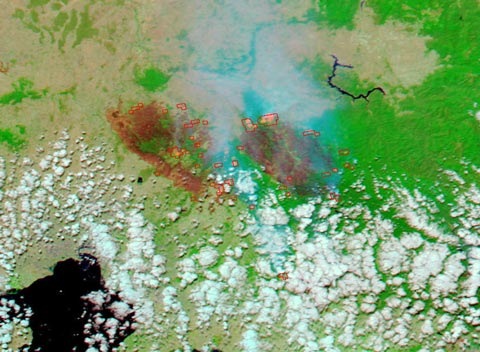 Climate change is happening now and Australia is in the firing line says Jim Salinger in this guest post. This article first appeared in the Dominion Post.
Climate change is happening now and Australia is in the firing line says Jim Salinger in this guest post. This article first appeared in the Dominion Post.
As I watch from my summer subtropical perch in Brisbane, Queensland, the somewhat unprecedented rains that deluged parts of Australia during the summer of 2010/11 have been replaced by sizzling heat waves this summer. These raise some pertinent lessons on climate and risk management for New Zealand. Firstly let’s look at some figures and ask the question of what are the climate mechanisms behind the heat waves.
For December 2011 the Bureau of Meteorology figures show that the highest temperatures of the year occurred in the third Australian heat wave of the year. This affected the Pilbara region in the north west of Western Australia. Multiple sites broke the previous Western Australian December record of 48.8ºC on December 26, 1986 with Roebourne recording 49.4ºC on December 21, Onslow Airport recording 49.2ºC on the 22nd and Learmonth 48.9ºC on the 23rd. Roebourne’s 49.4ºC was the highest temperature recorded in Australia since 1998.
This month incessant heat has struck the interior with daytime highs soaring to the mid forties. As I pen this there are a few more days of this heat wave left with temperatures averaging between 35ºC and 40ºC in central Australia. Places have been recording daily lows of 30ºC and daily highs of close to 45ºC. Mean temperatures have been running over 6ºC above average.
Continue reading “Signs of things to come: Salinger on Australian heatwaves”

 The extraordinary sequence of extreme weather events during the last 18 months is probably the worst run of natural disasters since 1816, when a huge volcanic eruption at Mt Tambora cooled the earth enough to cause the famous “
The extraordinary sequence of extreme weather events during the last 18 months is probably the worst run of natural disasters since 1816, when a huge volcanic eruption at Mt Tambora cooled the earth enough to cause the famous “ Gerrit van der Lingen, a local crank, NZ CSC member and self-styled “climate change consultant” who
Gerrit van der Lingen, a local crank, NZ CSC member and self-styled “climate change consultant” who 